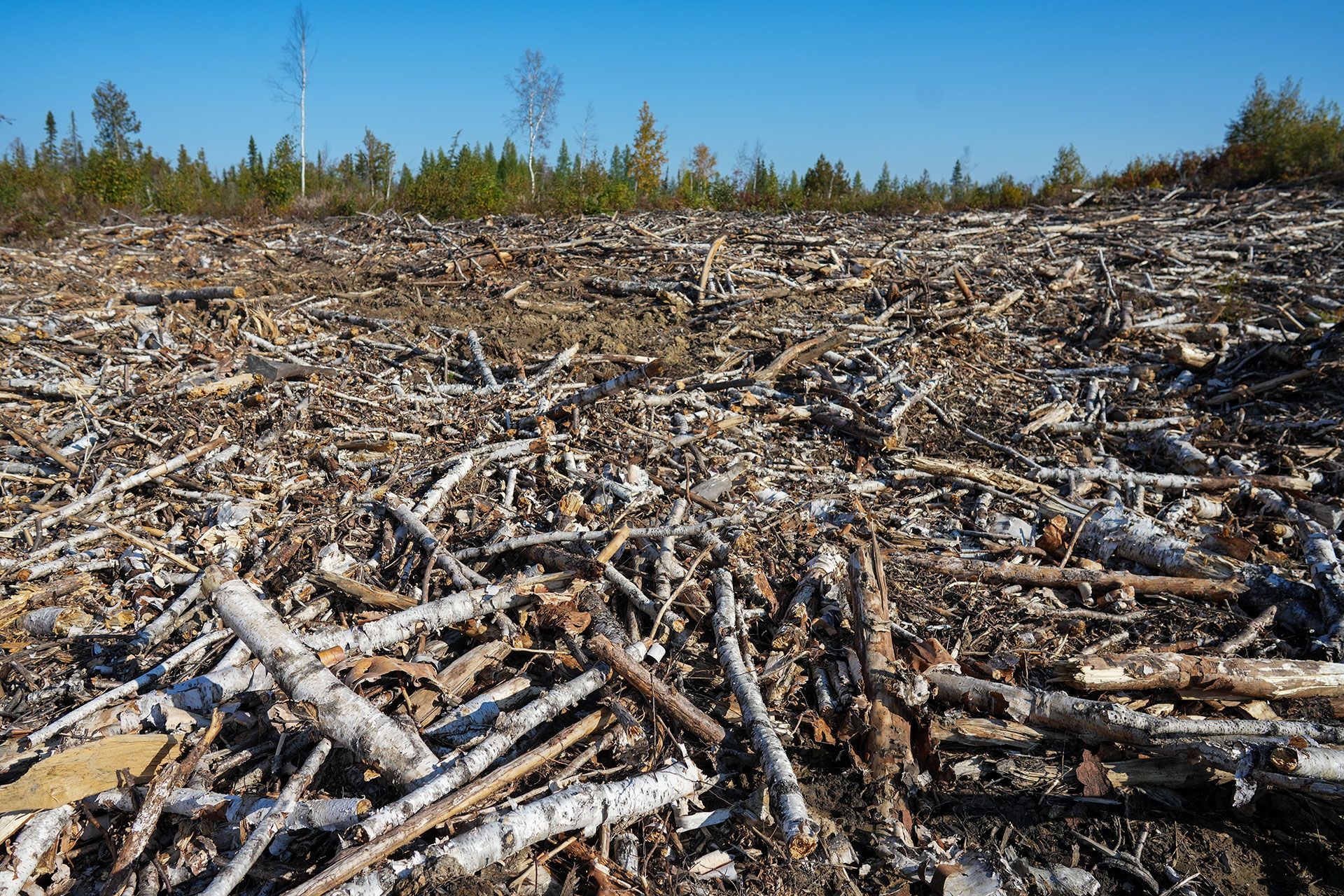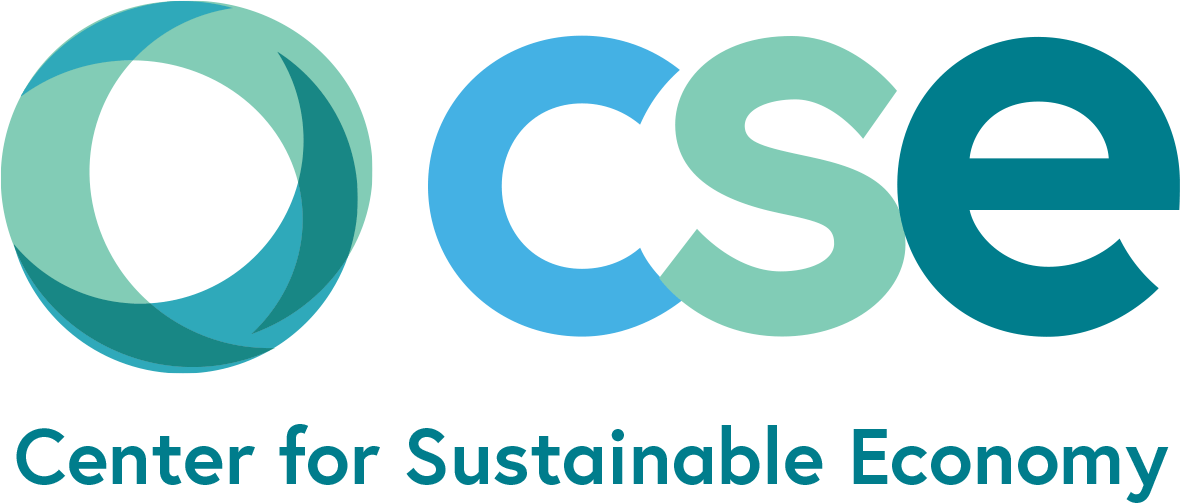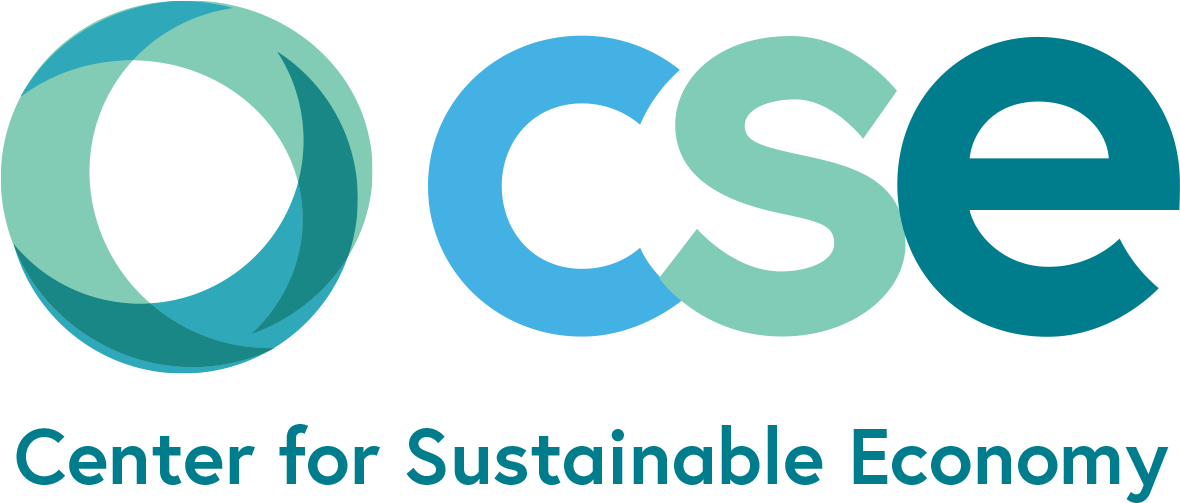Boreal Forests Down the Toilet
July 3, 2025
New report documents the climate consequences of clearcutting
Canada’s vanishing forests for tissue paper and paper towels

Seattle, WA: In a new report, the Center for Sustainable Economy (CSE) estimates that clearcutting over 32,000 acres of boreal forests in Ontario to produce pulp for toilet paper made in the US generates over 3.8 million tons of carbon pollution each year. This is equivalent to what is emitted by over 824,000 gas-powered passenger vehicles or several small coal-fired plants. The report also quantifies the economic damages associated with this pollution – over $560 million each year, or $1,715 for every ton of pulp exported to the US. The export price of pulp from Ontario is currently hovering around this same level, meaning any financial benefits from export are entirely canceled by the economic harm created.
According to Dr. John Talberth, President and Senior Economist for CSE, “It’s hard to imagine a more wasteful use of carbon rich forests. In a rational economic system, this should not be happening. The problem is that neither Canada nor the US is putting a price on the climate and environmental damages associated with boreal forest clearcutting and factoring that price into trade and environmental policies. Our report helps lay the groundwork for doing so.”
At a time when Canada’s forests are facing catastrophic levels of human and climate-related deforestation and are now a source instead of a sink for carbon emissions the report argues that trade and environmental policies need fast-tracked reforms to end subsidies and otherwise disincentivize the use of carbon-rich boreal forests for toilet paper and accelerate growth in the manufacturing of non-wood alternatives from hemp, bamboo, kenaf, and agricultural wastes, mostly provided by US farmers.
One policy CSE and its partners are promoting are border carbon adjustments (BCAs), a type of tariff included in two bi-partisan bills currently circulating in the US Congress. The point of these bills is to create economic incentives to help US producers of goods that are less carbon intensive than those imported from abroad. In an opinion piece by Senators Kevin Cramer (R-ND) and Chris Coons (D-DE) in support of their legislation, “Our bipartisan PROVE IT Act (Providing Reliable, Objective, Verifiable Emissions Intensity and Transparency Act) would demonstrate our advantage in clean production and make clear to consumers around the world the environmental damage caused by some emissions-intensive foreign products.”
“Canadian pulp for toilet paper is an ideal test case for the Senators border carbon adjustment idea, Talberth continues. “Here, a 100% tariff is justified on climate damages alone, an amount that will give US producers of non-wood paper products a leg up in markets that are now subsidized by Canada.”
Environmental Paper Network (EPN), who leads a 350-member international coalition has been working for decades to help such producers capture a greater share of the market now dominated by timber corporations that have convinced legislators on both sides of the border and both sides of the aisle to subsidize their products over non-wood alternatives. Industrial logging activities, whether for mass timber products or paper, receive generous government subsidies in the form of lower taxes, exemptions from tariffs, limits on liability, taxpayer funds for mills and infrastructure, and access to below-cost wood from public lands. As the CSE analysis shows, the unaccounted-for greenhouse gas emissions associated with the Dryden mill’s current operations in Ontario likely outweigh its economic benefits.
According to Dr. Elizabeth Underwood, EPN’s North American Director, “Clearcutting about 13,000 hectares a year of the Canadian Boreal Forest for pulp production at the Dryden mill has enormous environmental implications. Calculations from this report are on par with EPN's Paper Calculator (TM) tool, which uses a science-based methodology to estimate various metrics, including GHG emissions. Moreover, this egregious environmental devastation by the logging industry is currently subsidized at a time when marketplace sustainability leaders are offering products made from environmentally preferable alternative fibers, such as hemp, bamboo, kenaf, and recycled content. This report brings to light both problems and solutions at a time when US and Canadian governments -- and public consumers -- are scrutinizing subsidies and tariffs. Hopefully leaders on both sides will use the scientific data to reform economic policies to align with environmental and ethical protections."
The full report can be downloaded here.
This press release can be downloaded here.
Washington Times op-ed can be viewed here.
Washington Times op-ed full version can be viewed here.


